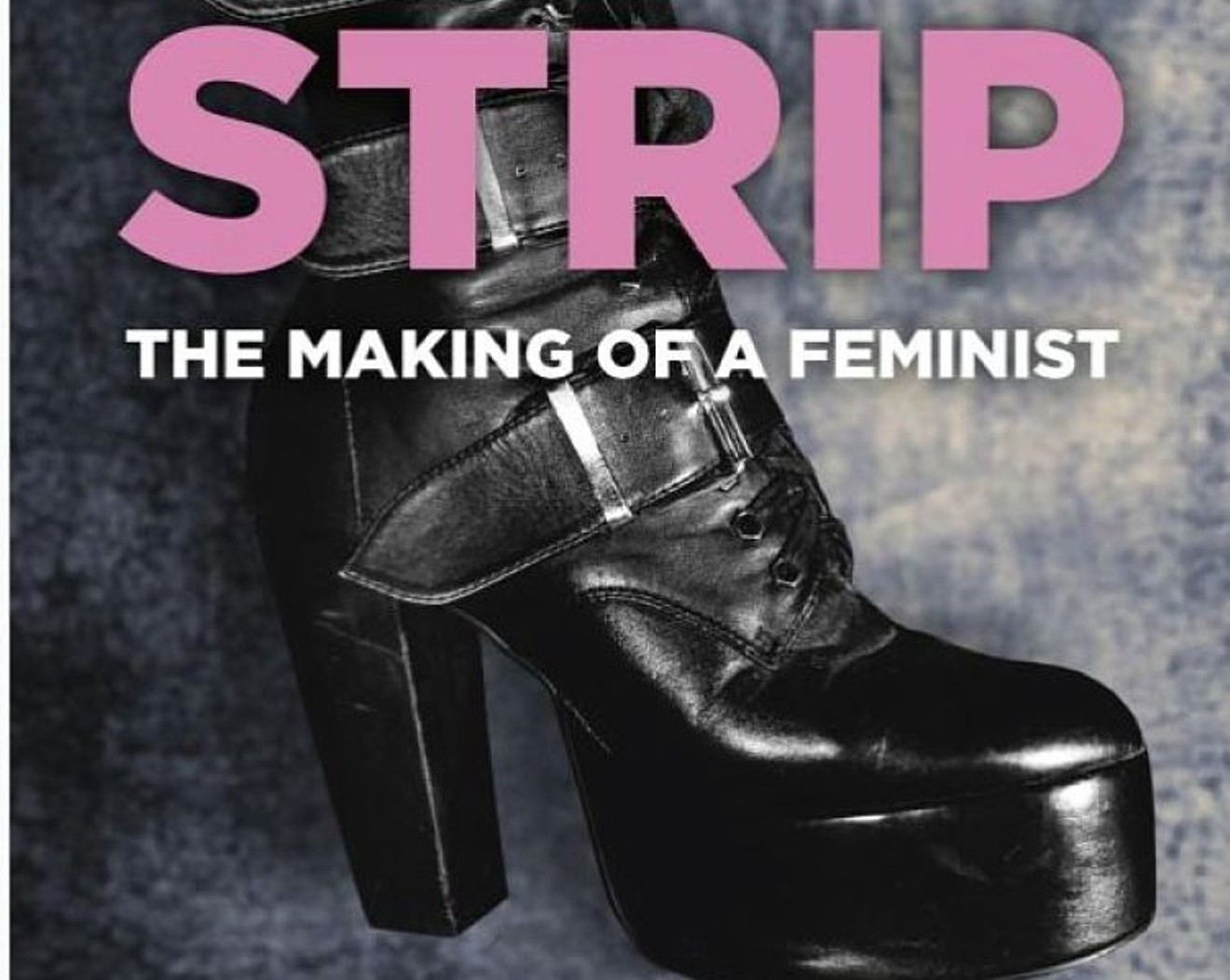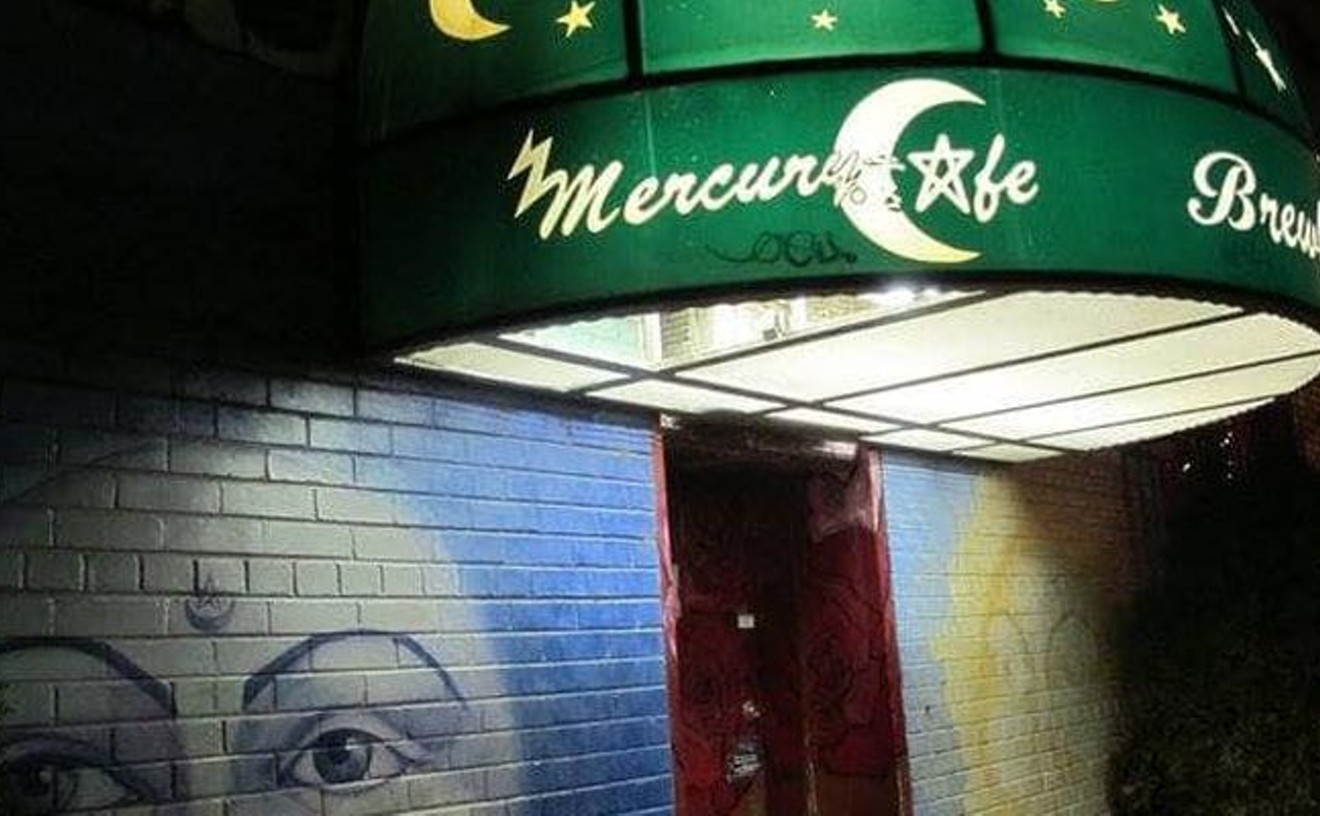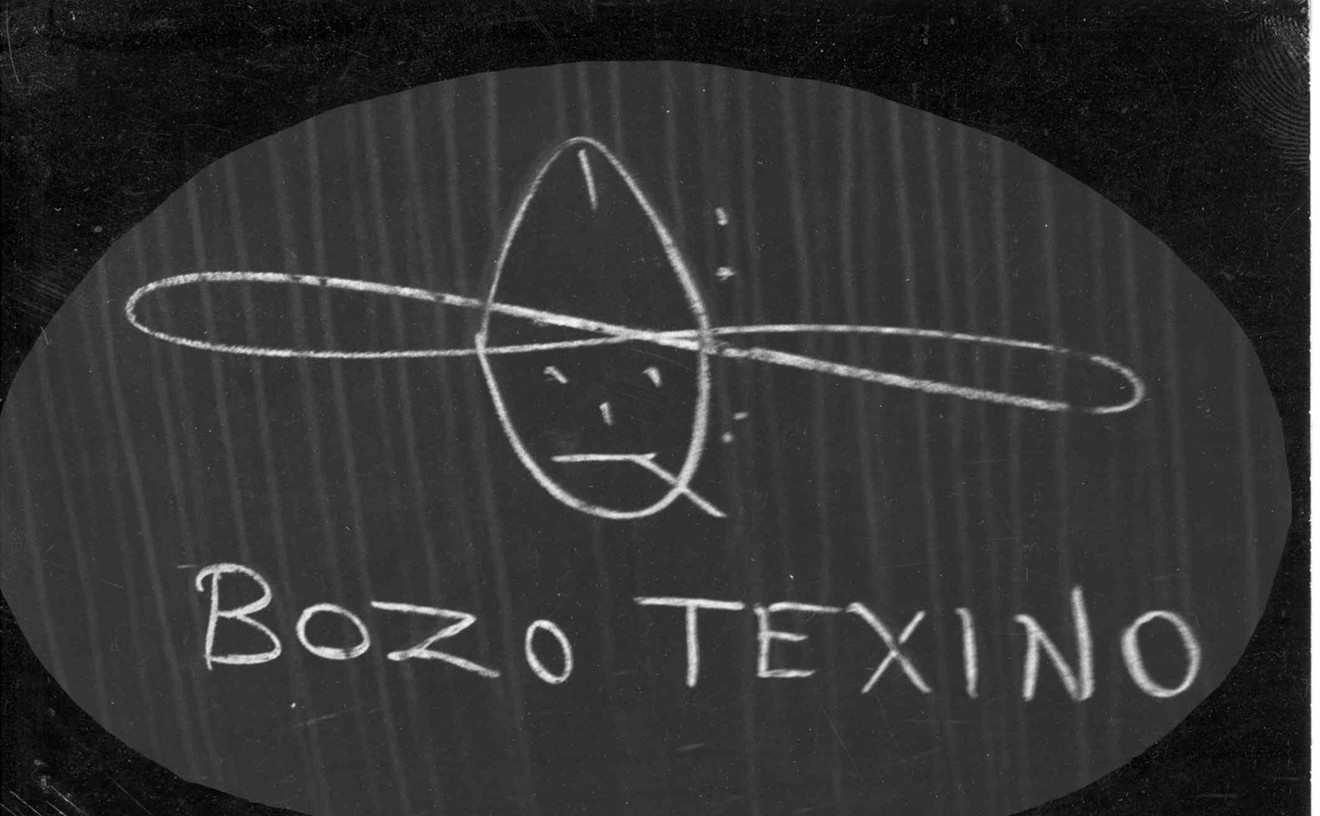Can stripping be a feminist act? Or is stripping inherently degrading sex work that objectifies the women who choose it as a profession? Catlyn Ladd worked as an exotic dancer for five years, using the money she made to earn a doctorate in religious studies at the University of Denver/Iliff School of Theology. She now teaches women’s studies and religious studies at Front Range Community College, where she's been a full-time faculty member since 2006. In her first book, Strip: The Making of a Feminist, Ladd brings her academic eye to bear on a controversial topic that is often overlooked and ignored.
Strip: The Making of a Feminist was just published this week by Changemakers Books; in advance of its release, we spoke with Ladd about her book, her career path, and what she learned about life from stripping.
Westword: How did this book came about?
Catlyn Ladd: It was one of those happy circumstances. ... I’m friends with a gentleman named Tim Ward, who has a number of books out on the "feminine divine" that I have used in women’s-studies classes. At some point I mentioned my background, which is a little unusual for women’s-studies professors. He was interested, and I started telling him stories about my times working in strip clubs. He said, "You have to write this book." It had crossed my mind before.
How did you get into stripping?
My junior year in college, I studied at Oxford University. I was going to a small, private liberal arts college that was very expensive, and when I returned, I didn’t want to live on campus in a dorm, and I didn’t have any money. I was on work study; I needed a way to make a lot of money without a lot of work...which is often how people get into this field. And I had a friend who worked there.
Stripping has its stereotypes. What surprised you about the work?
I have my retrospective insights. But at the time — and I was sort of prepared for this by my friend — I found it was so not sleazy. I was worried that I wouldn’t feel safe, that I would be propositioned or groped or assaulted. ... She was very good at alleviating those fears. I was very struck that I did feel safe, I didn’t feel objectified, in a way I was comfortable with. A majority of the clients were looking to make some kind of human connection. They were interested in me as a human person.
How long did you work as a stripper?
Five years. I started stripping when I was a junior, and I stopped when I graduated with a master's in religious studies. I could work three nights a week and live very comfortably. One year I tracked how much I actually made: about $40,000. I could very comfortably afford housing and school supplies and at least some of my tuition.
You say that stripping allowed you to heal from intense bullying. How did that work?
Like many girls, I faced bullying in middle school that targeted my looks: I was called derogatory and hurtful names targeting my clothes, my skin, my face — everything about how I looked. I grew up pretty poor and couldn’t afford name-brand clothes and makeup. I also have a fairly theatrical style, and so I never “fit.” Stripping allowed me to heal my self-image around how I look. Not that looks are everything, but how we perceive ourselves affects our confidence, our mental health, our sexual health — a lot. Stripping gave me a confidence boost that then allowed me to analyze other aspects of myself: how I present myself, how I want to be perceived and how to influence that. I was welcomed for my style and looks and affect, and that REALLY helped me heal. Once I had healed my self-esteem around my appearance, I moved on to growing in other ways: intellectually, emotionally, professionally, etc.
What are the gendered roles in stripping?
Strippers play with stereotypical gendered roles concerning what it means to be a woman and what it means to be sexual. For example, the “librarian” is a type who is supposed to be asexual. So the stripper comes out dressed as a librarian and then strips off that stereotype to reveal the sexual woman beneath. It upends the role expectations. Society often thinks of stripping as affirming (patriarchal, oppressive) stereotypes, and it does this, too: There are a lot of Madonna/whore aspects to the job. So stripping can either affirm and uphold sexual roles, or it can upend and reconstitute them. Either of those can be positive or negative, depending. But there is at least the potential in sex work to be subversive in very important and interesting ways.
What is the impact of race on the identity of strippers?
Short answer: White girls make more money. Clubs (depending on where they are located) often limit the number of women of color on a shift. They never limit the number of white chicks. Women who can “pass” as a race that is considered exotic in our culture sometimes lie about their ethnicity. For example, I worked with more than one Latina who passed herself off as Asian to make more money. American (men) fetishize Asian women.
Are people surprised to learn that you've worked at strip clubs?
Not usually. I typically don’t start a conversation that way; it’s something I reveal when I get to know someone. There is definitely a feeling of steeling myself, but it’s not because I worry about rejection; it’s because people are fascinated and want to talk to me about it for hours, and I have to make time for it! People are super interested.
How did you get the book published?
With Tim’s help, it was pretty easy. ... I publish with the same company that he publishes with [Changemakers Books]. ... When I was marketing the book, there was a whole conversation about whether it was a memoir. I was sort of aware — and became more aware — of the fact that women’s writing is often dismissed as memoir. First of all, I don’t think it should matter whether it’s a memoir. I had one editor tell me very directly, "We don’t publish memoir.” Okay, I said, give me your definition of memoir. I made some changes to the structure of the book in response to that, and I was ultimately successful. That most memoir appears to be written by women and consumed by women makes it the literary equivalent of the rom-com. It was an interesting discussion.
Coming out as a prior sex worker is risky: I do not want to minimize that.
tweet this
What's the response been like so far?
Pretty positive. I haven't anything overtly negative in response. It seems like a lot of people are aware that the stereotypes surrounding sex work are not complex, they’re not nuanced. The overwhelming response is just kind of fascination.
Anything else you'd like to add?
I have not shared this part of my background with students, but that relates more to the time commitment: If I’m trying to teach them about Jean-Paul Sartre, I can’t let the discussion get derailed into sex work! Now that the book is coming out, I have no doubt that I’ll have conversations with students. I have not yet decided whether or not I will integrate the book into any curriculum yet, but I do have at least one colleague who plans to use portions of the book.
Additionally, I am in a good position to speak publicly: I have tenure, I have significant teaching credentials, I have a long track record professionally, I live in one of the most liberal places in the country. Coming out as a prior sex worker is risky; I do not want to minimize that. Not everyone has the luxury of telling their story. I also want to be very careful that my book is not taken to speak for “all” strippers. In the book, I reiterate multiple times that mine is a single experience that is inseparable from my whiteness, the fact that both of my parents are college-educated, that I am very privileged in a lot of ways. The bad things we hear about strip clubs — that women are trafficked, forced to work as prostitutes, abused by clients and club owners — are also true. My main desire is to impress upon readers that the story is not single: Sex work is complex and multifaceted. Treating strippers as though there is a single story minimizes women’s (the vast majority of sex workers are female) stories.
Catlyn Ladd will read from and sign Strip: The Making of a Feminist at 7 p.m. Friday, August 3, at the Tattered Cover in LoDo. Read "Fetish," chapter six of Strip, here; learn more about the author at catlynladd.com.













